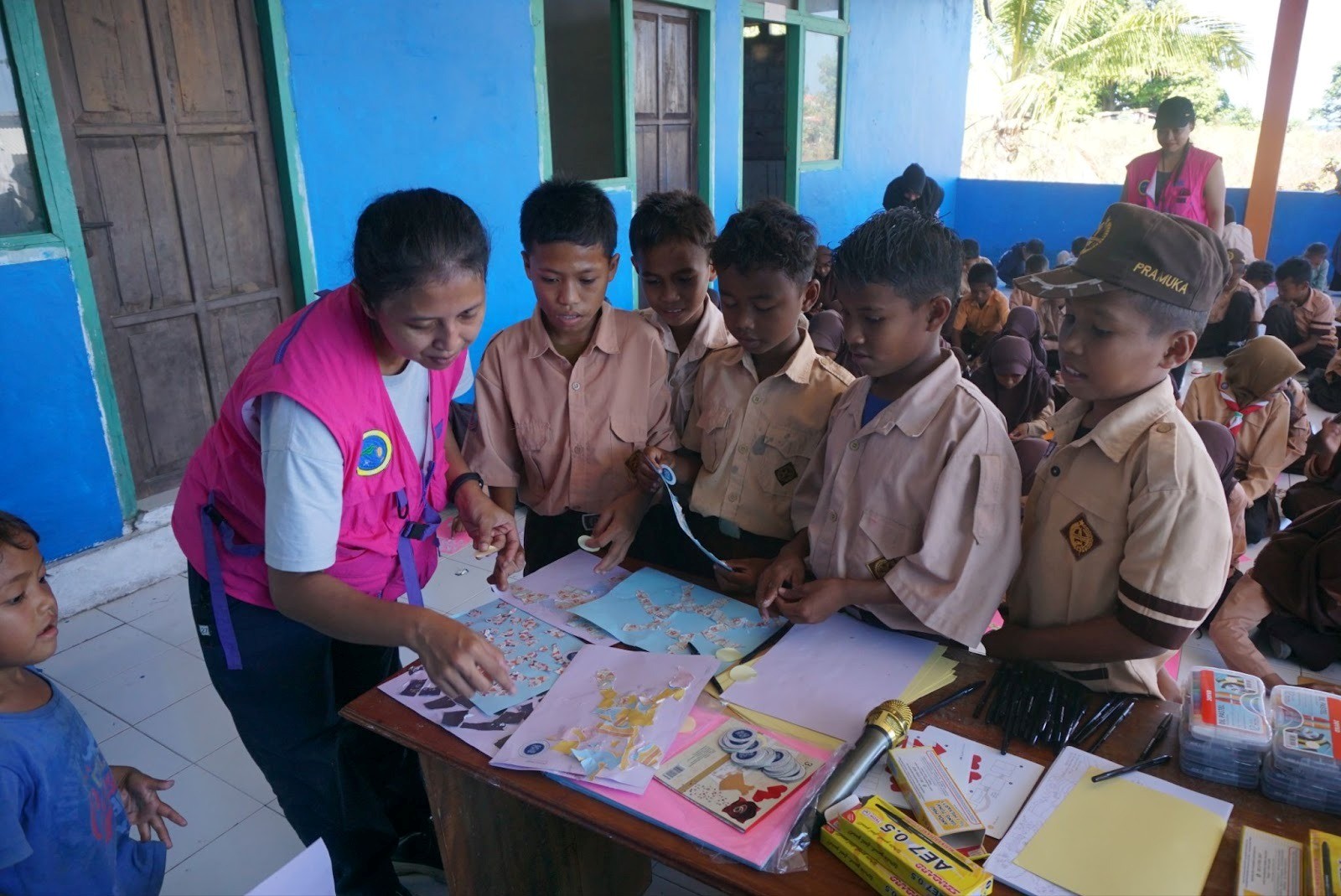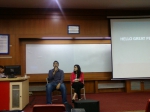Researching the Benefits of Home Solar Panels, Faisal Anshory Wins First Place at Esri Young Scholar Award 2022
By Adi Permana
Editor Adi Permana

BANDUNG, itb.ac.id – With his research titled “Advantages of Personalized Solar Panels for Houses in Bogor”, Muhammad Faisal Anshory from the ITB Geodesy and Geomatics Engineering study program emerged as the winner of the Esri Young Scholar Award 2022 on April 7.
Esri Young Scholar Award is a prestigious competition organized by ESRI, a company that offers software like ArcGIS and ArcMap. This event focuses on research projects about geospatial utilization with ESRI technology that helps in solving real-life issues. One of the myriad benefits of being the winner is the opportunity to represent Indonesia in the global GIS convention.

Faisal discussed the household benefits of using solar panels in Bogor by calculating and estimating the amount of electricity generated by a building. "I also counted the amount of money earned from it and studied the amount of energy needed to be reduced if compared with the conventional electricity that comes from fossil energy," he explained on Sunday (10/04/2022).
He hopes that his research can educate the public on the advantages of solar panels. "Indonesia is currently implementing solar panels at houses where residents can sell their excess energy to PLN and others who need electricity," he added.
Faisal also wishes the people and communities in Bogor to understand the benefits they gained from solar panels to initiate the transition to cleaner energy. In addition, he hopes this project can be applied in other cities.
The project’s idea originated from the fact that electricity produced from solar panels can be sold to PLN. "I was curious whether most buildings are suitable for installing solar panels so that we can gain money from it,” Faisal stated.
Faisal faced numerous obstacles in his research that are mostly technical errors and data limitations. "The early problems are the insufficient data available. Because of this, I decided to develop an automatic detection technology,” he reminisced. “I continue to develop this technology in terms of the environment to utilize solar panels. As a result, I learned many things in other fields of studies that can be applied with geospatial topics taught on campus.” Moreover, buildings in Bogor are still yet to be digitized; hence, the data regarding the study area is limited.
Presenting the research in front of the judges is not an easy task. "It is challenging to explain what we have done to those who are experts in their respective fields," he said.

Faisal initially did not expect much about the outcome; he assumed it is natural to feel like this when other competitors seem to offer interesting pitches. However, this did not dampen his spirits. "The important thing is to try," he remarked.
Faisal had previously participated in the same competition, but his research did not qualify him as a finalist. Learning from past failures, Faisal advised fellow students to keep on trying. "It is best not to give up. Even though I failed last year, I have the chance to change the result today.”
Reporter: Kevin Agrive Ginting (Geodesy and Geomatics Engineering, 2020)
Translator: Ruth Nathania (Environmental Engineering, 2019)

.jpg)
.jpg)


.jpg)



